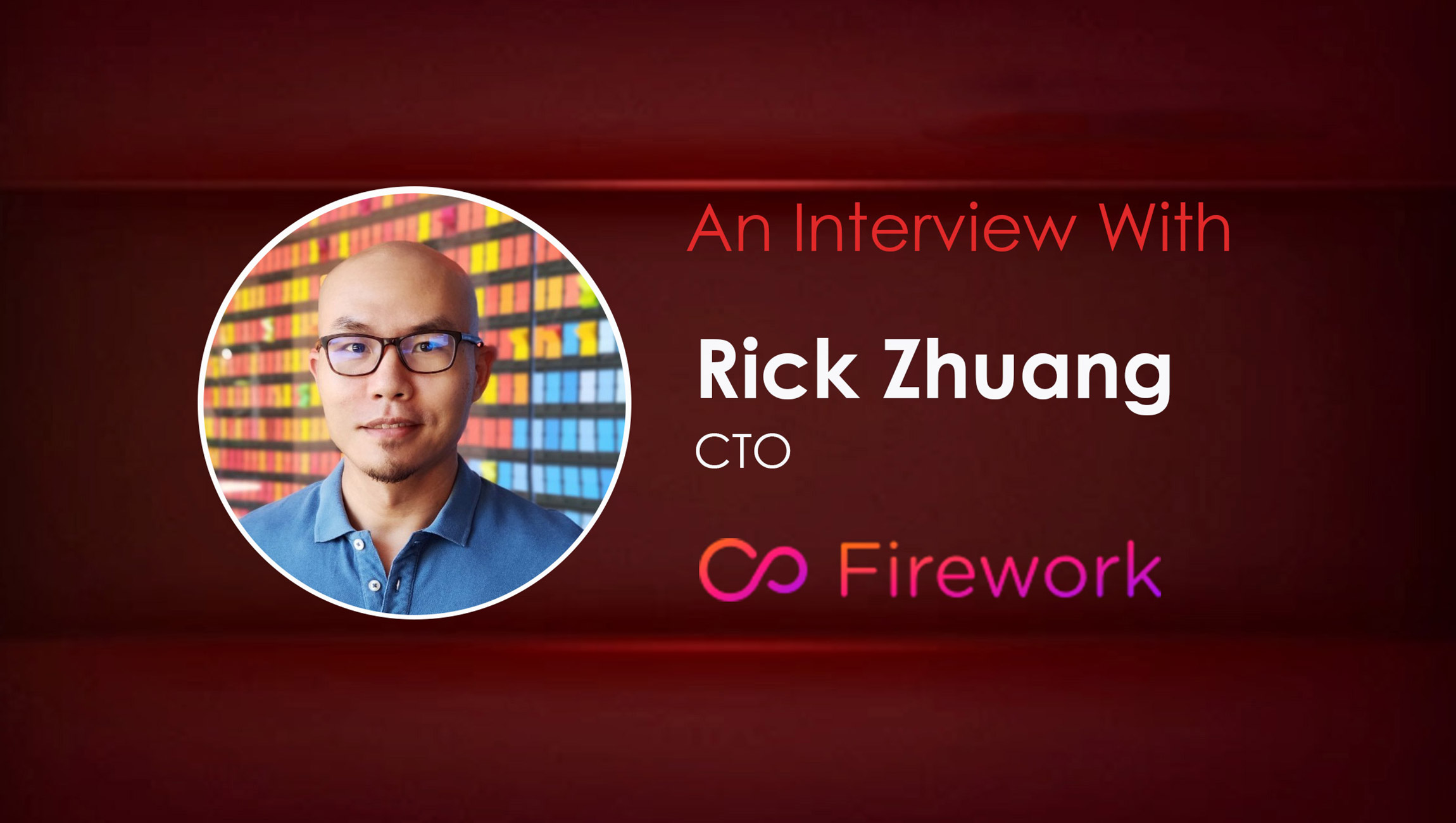Is livestream e-commerce set to become the next big thing in online buying-selling transactions? Rick Zhuang, CTO at Firework shares a few thoughts:
__________
Welcome to this MarTech Series chat Rick, tell us about your journey through the years, we’d love to hear the key highlights…
Prior to joining Firework I was the Head of Engineering for Tencent and Alibaba, where I led development of their TMall Retail, Taobao Content Platform, and what Taobao then called a “private domain content ecosystem”. After experiencing firsthand the success of innovative, next-generation e-commerce models in China and other Asian markets – and realizing the tremendous potential for transformation they can bring – it was only natural to want to play a role in its development in the West. One look at the competitive landscape in the United States was enough for me to know that Firework was the organization that would make that happen.
Marketing Technology News: MarTech Interview with Tugce Bulut, Founder and CEO at Streetbees
Tell us more about Firework and how it is meeting today’s user needs in a largely digital and always-on market?
Firework is the leading shopper-tainment platform on the open web, but in many ways it’s more than simply a shopper-tainment platform. While short-form, shoppable video and livestream e-commerce are certainly key elements of our platform’s overall functionality, they don’t fairly represent the full scope of what Firework has to offer. The “largely digital” world you mention is quickly becoming an “almost exclusively digital” world. Firework is providing the end-to-end solutions for today’s retailers, brands, and publishers to thrive in that world — from creation to curation to distribution and to monetization. Unlike the social media livestream tools on the market, or the self-contained apps on the market, Firework is first and foremost a digital transformation company; we aim to equip businesses with the things they need to thrive today and in the 99% digital future.
How do you feel features like live streaming will start to become more integral to the future of eCommerce?
I think the most educational thing many of us can do in the tech space is to sit down for an hour or so and see how the youngest of generations are currently engaging with technology. Have you noticed how they hold their phones and use multiple fingers when scrolling? It’s incredible to see just how different they already are from even older millennials. It’s simply a whole different set of expectations, preferences, and behaviors. Unsurprisingly, things are faster, more dynamic; users aren’t so easily engaged, it is easy to lose their interest. But, at the same time, they’re still very social. The stereotype of the antisocial Zoomer is a misconception—they’re extremely social. They’re simply doing more of their socializing in digital spaces. So, things like livestream commerce hit all the right notes, bridging the attention gap with video, interactivity, and immediacy; while at the same time, fulfilling the social and experiential element with the streamer’s presence. The cold, purely transactional nature of say, Amazon, will only go so far before utility alone isn’t enough.
In what ways do you feel online sellers will have to rethink how they sell and portray their products in order to grab more attention and final purchase decisions?
It’s important that online sellers be more than just sellers. They have to be people first, and they need to ensure their identity—whether we’re talking brand identity or a personal one—is clearly communicated and shared in the right context at all times. Being just another stall in the bazaar is not going to cut it moving forward. Sellers will have to curate their own digital spaces to grab the attention of buyers moving forward, in much the same way they devote so much thought and energy into their brick-and-mortar store experiences. And all this is very much in line with the decentralized, Web 3.0 transformation we keep hearing about. Decentralization is synonymous with ownership; Owning your individuality in the digital world and connecting more organically with a clearly defined buyer. We’re already seeing a lot of these things begin to manifest, especially in major, forward-thinking brands, like Nike who’s been increasing their focus on DTC sales over recent years and making strides as a result.
What are some of the top challenges that you feel today’s commerce platforms despite their rich capabilities still can’t always solve for brands/publishers/retailers?
It’s a question of identity. They can provide the tools, the platform, the capabilities, but they can’t provide a brand identity; at least, not a genuine one. Only the individual or organization itself can do that. And that’s something that Gen-Z and Gen Alpha can sense from a mile away—disingenuousness; being fake. Through sheer exposure, most have the equivalent of a Masters in Digital Marketing by the third grade. So, the tools are essential, but not sufficient in and of themselves.
A few predictions, surrounding the future of online commerce?
The purely transactional process you see on Amazon—where a buyer simply searches and navigates to the product page of something they already know they want, then goes straight to checkout—will feel very old-fashioned and uninviting by the end of this decade. And you’ll see markets shift away accordingly. They won’t disappear. There will still be a place for that kind of strictly utilitarian e-commerce. But it will be considered distinct from online shopping in the future. The “shopping” aspect will be defined by browsing, discovering, and examining products in a more immersive, organic way – utilizing multisensory inputs and probably even allowing consumers to try on or test products (thanks to some of the tech coming out of the world of AR/VR). A healthy dose of serendipity goes a long way. In some ways, I think the future of online shopping will come full circle to resemble something akin to mall culture in the 1980s, or even walking down main street before that, with buyers expecting a lot from the experiential side of commerce. The traditional form of e-commerce will be like going to the DMV or a c-store—necessary for the necessities, convenient when pressed, but not much more.
We’d love a few of your thoughts on how you feel martech as a segment will evolve in 2022?
I think we’re going to see a whole lot of martech focused on interactivity. That realm of functionality can get complicated pretty quickly from an engineering perspective, but we already know it pays off in terms of increased reach and engagement. And you’ll see lots of companies trying to dial up the ways in which users can have more immersive digital experiences. I imagine we’ll see a lot of effort and energy going into optimizing and tooling for first-party data strategies in 2022, as well, given the impending phase-out of the third-party cookies. I imagine we’ll see a concurrent shift toward first-party domains and more martech efforts focused on bringing elements traditionally associated with social media to the open web.
Marketing Technology News: MarTech Interview with Laura Taylor, CMO at Crayon
Some last thoughts, takeaways and martech tips and best practices before we wrap up!
I think the Nike case study I alluded to earlier is an interesting and important one, because they’ve provided an excellent playbook for businesses to refer to as the digital landscape continues its transition away from the walled gardens of Web 2.0. Since 2010, Nike’s DTC sales have increased more than 660% and now accounts for 40% of their total revenue.
The brand has created a model DTC strategy: Move away from centralized, walled gardens, invest to own the dialogue with customers right on the brand’s own website and app, and for brands with brick-and-mortar presence augment the in-store experience with digitally-enabled touches. I have seen the same playbook succeed in China. Over time it builds up the engagement, trust, and eventually brand loyalty with your customers.

Firework is the world’s leading immersive “shoppertainment” platform with shoppable video, live streaming commerce and monetization capabilities powering over 600 direct-to-consumer brands, retailers and media publishers worldwide. Pandemic-accelerated, Firework has experienced 10x year-over-year growth, bringing TikTok-like interactive video experiences to your own website or app. Firework enables its customers to create and host native, shoppable video content for engaging product discovery, seamless shopping experiences and ultimately, a deeper emotional connection with consumers. The company is backed by IDG Capital, Lightspeed Venture Partners and GSR Ventures, with over $100 million in capital raised to date.
Rick Zhuang is the CTO at Firework
Missed The Latest Episode of The SalesStar Podcast? Have a quick listen here!
Episode 111: Driving Better Productivity within your Product Team: with Kristina Simkins, VP of Product at Lessonly by Seismic
Episode 110: Driving Sales-Marketing Unity with Chetan Chaudhary, Chief Revenue Officer at Scale AI
Episode 109: B2B Revenue Generation Tactics with Michelle Pietsch, VP of Revenue at Dooly.ai











